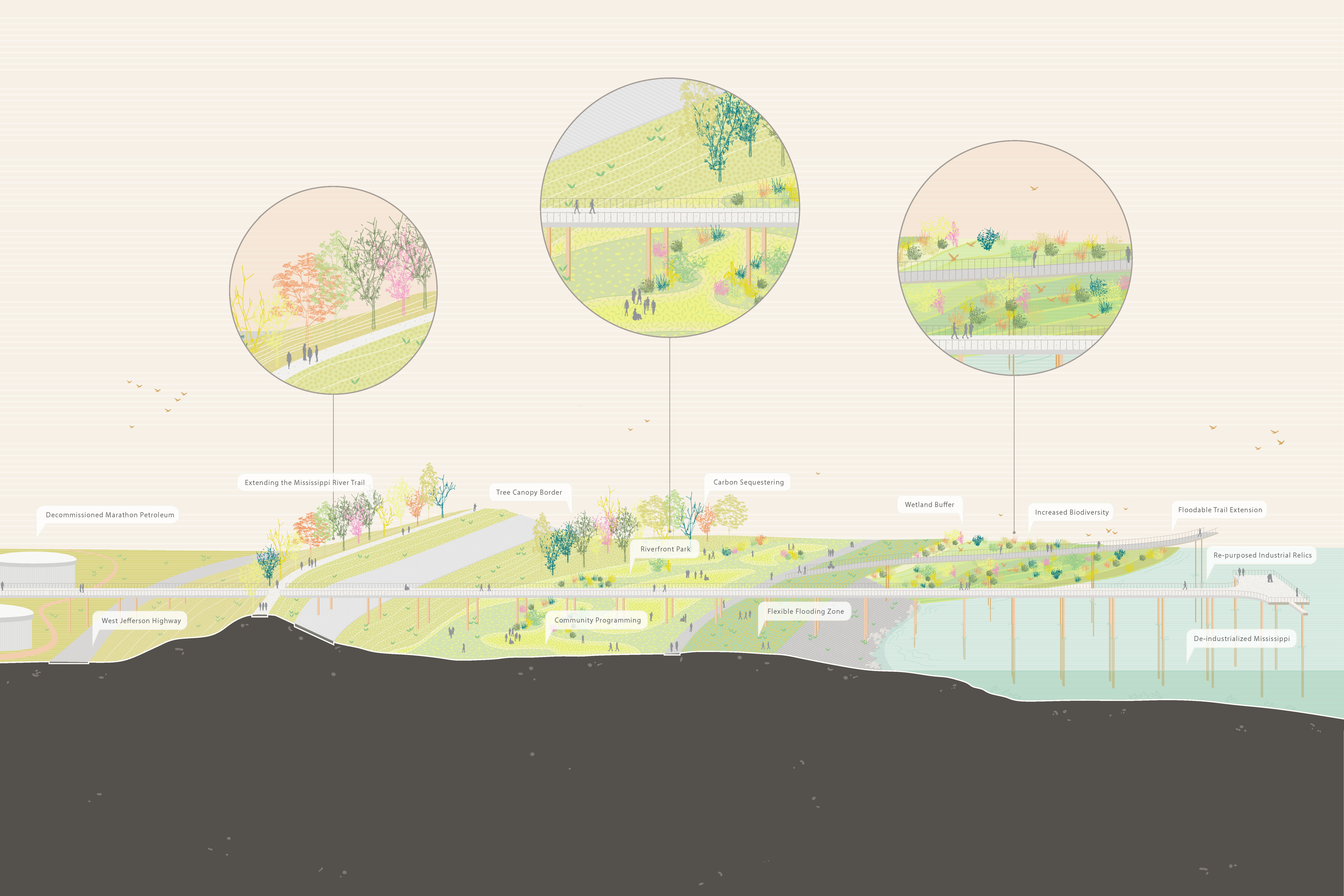
Exploited to Empowered: Methods for Reparations and Resilience in a Post-Petrochemical Transition
Gulf Design Research Studio Pilot: Climate Futures
Tulane University
Global shifts to renewable energy sources, the UN Net Zero Coalition, and decreasing demand for oil and gas create a pivotal moment for the petrochemical industry and the communities it impacts. This moment presents both an opportunity to halt patterns of exploitative land use and disproportionate industrial production, and a risk of further marginalizing disadvantaged communities if no steps are taken to protect and equip the vulnerable. This visioning project recognizes the need for a managed phase-out of the fossil fuel and petrochemical industry in the Gulf South region to ensure an equitable transition for communities that have been exploited in favor of global-scale production and consumption. The project envisions a framework that creates site-specific and stakeholder-driven methods for petrochemical facilities and their adjacent communities to transform over time in a global transition from fossil fuels to renewables. This framework aims to deconstruct spatial patterns of industrial dominance, focus on collective flourishing, and put land use decisions in the hands of the community. It also prepares resiliency strategies against future climate and economic risks. Strategies for generating replacement local economies, remediating and regenerating polluted environments, and empowering community ownership are proposed, with emphasis on a transition that invests in people and place development led by the community and funded by declining petrochemical industries through a policy-driven community land trust.
